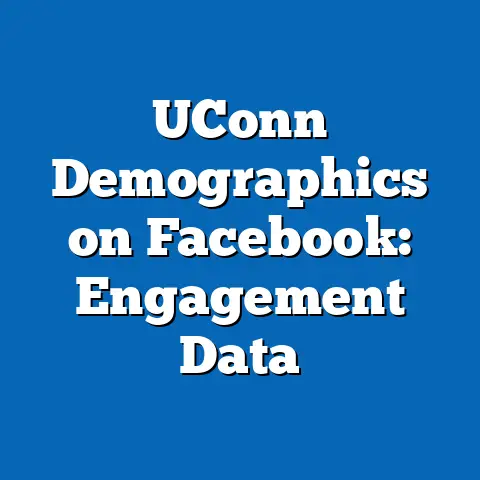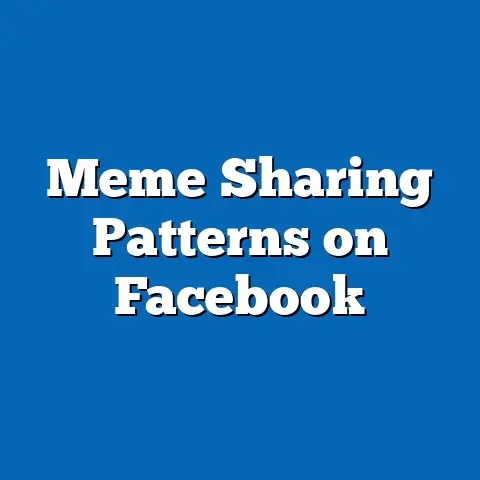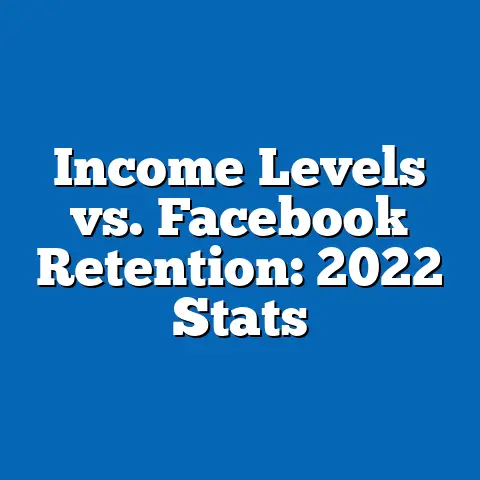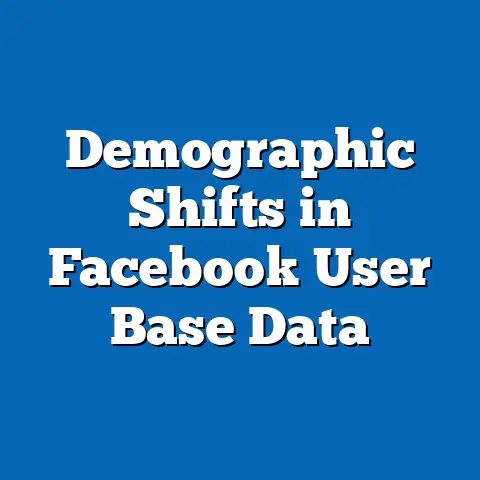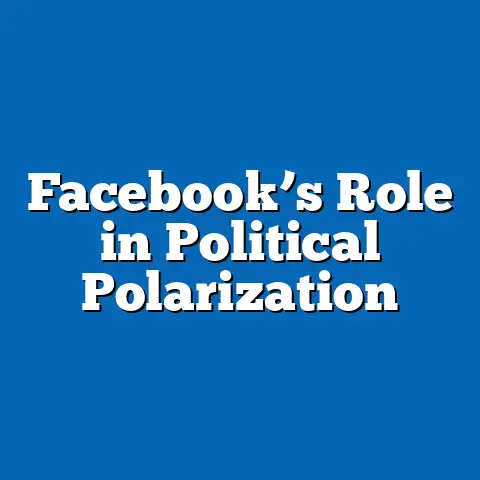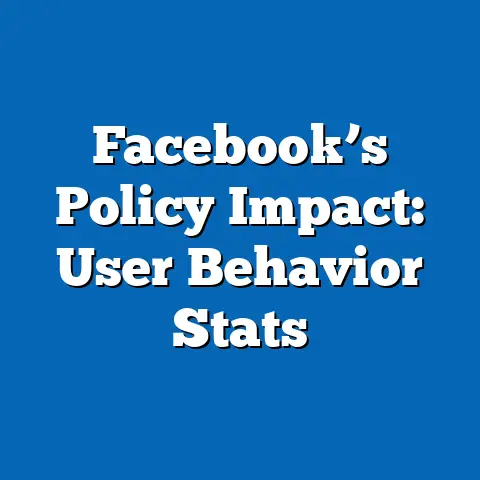Regional Differences in Facebook Activity
Social media platforms like Facebook have become integral to daily life, shaping how people connect, share information, and engage with the world.
Facebook, launched in 2004, has evolved from a college networking site to a global powerhouse with over 2.9 billion monthly active users as of 2023.
This article examines generational differences in Facebook activity, starting with the relevance of generations in this context, and extends to regional variations that influence usage patterns.
The relevance of generations lies in their distinct formative experiences, which shape attitudes toward technology and social media.
For instance, older generations may view Facebook as a tool for maintaining relationships, while younger ones might see it as outdated compared to emerging platforms.
Understanding these differences helps unpack broader societal trends, including digital divides and cultural shifts.
By analyzing data from sources like Pew Research and Statista, this piece highlights how factors such as technological adoption, economic conditions, and cultural norms vary across generations and regions.
The discussion aims to provide a nuanced view, avoiding oversimplifications while addressing implications for society, workplaces, and culture.
Key Defining Characteristics of Generations and Their Relevance to Facebook Activity
Generations are typically defined by birth years, shared historical events, and cultural influences that mold their behaviors and values.
Baby Boomers (born 1946-1964) are often characterized by their emphasis on community and traditional communication, which translates to using Facebook for social connections.
Millennials (born 1981-1996) grew up amid rapid technological change, making them early adopters of social media for both personal and professional purposes.
Gen X (born 1965-1980) bridges the analog and digital worlds, exhibiting pragmatic tech use, while Gen Z (born 1997-2012) prioritizes authenticity and visual content, often favoring platforms like TikTok over Facebook.
The relevance of these characteristics to Facebook activity stems from how each generation derives “value”—social, emotional, or informational—from the platform.
For example, Baby Boomers may find relevance in Facebook’s features for event planning and family updates, fostering a sense of belonging.
In contrast, Gen Z might perceive less relevance due to privacy concerns and algorithm fatigue, leading to lower engagement rates.
Historically, the concept of generations emerged from Karl Mannheim’s 1928 theory of generational units, which posits that shared experiences during youth create distinct cohorts.
In the context of Facebook, this relevance is amplified by the platform’s launch during the Millennial era, positioning it as a bridge between pre-digital and hyper-connected worlds.
Regionally, the relevance of generations to Facebook activity varies.
In North America, where individualism is prized, Millennials use Facebook for networking, whereas in collectivist societies like those in Asia, the same generation might leverage it for family ties.
This highlights how cultural contexts modulate generational traits, making Facebook’s relevance context-dependent.
Quantitative data supports this: A 2022 Pew Research study found that 70% of U.S.
adults aged 30-49 (mostly Millennials and Gen X) use Facebook, compared to 50% of those aged 18-29 (Gen Z).
In regions like Europe, where data privacy laws are stringent, Gen Z’s relevance-seeking behavior leads to lower adoption rates, with only 40% active users in that demographic.
Experts like Jean Twenge, author of iGen, argue that generational relevance on platforms like Facebook is tied to mental health impacts, with older generations reporting higher satisfaction from social connections.
Younger generations, however, often seek relevance through platforms that align with their values of speed and interactivity.
In essence, the relevance of generations to Facebook activity underscores a dynamic interplay between personal values and technological tools.
This sets the stage for exploring historical contexts that shaped these patterns.
Historical Context Shaping Generational Facebook Activity
The historical backdrop of generations is crucial for understanding Facebook activity, as it reveals how global events and technological advancements influenced adoption rates.
Baby Boomers came of age during post-World War II prosperity and events like the Civil Rights Movement, fostering a community-oriented mindset that aligns with Facebook’s original social networking purpose.
This generation experienced the internet’s mainstream arrival in the 1990s, viewing Facebook as an extension of earlier communication tools like email.
By the 2010s, Boomers had integrated it into daily life, using it to reconnect with old friends and share life milestones.
Gen X, shaped by economic recessions like the 1970s oil crisis and the fall of the Berlin Wall, developed a skeptical yet adaptive approach to technology.
They witnessed the dot-com boom and bust, making them cautious users of Facebook, often for professional networking via features like LinkedIn integration.
Millennials were forged in the fires of 9/11, the Great Recession, and the rise of smartphones, positioning Facebook as a core part of their identity formation.
Launched when many were in college, the platform became a digital diary and activism tool, exemplified by movements like the Arab Spring in 2011.
Gen Z, influenced by the 2008 financial crisis, climate change awareness, and the COVID-19 pandemic, views Facebook through a lens of scrutiny.
They prioritize privacy due to events like the Cambridge Analytica scandal in 2018, which eroded trust in the platform.
Regionally, historical contexts diverge.
In the United States and Western Europe, Facebook’s growth coincided with liberal democracies and free information flow, boosting adoption among Millennials.
In contrast, in regions like sub-Saharan Africa, where internet access exploded in the 2010s, Gen Z has used Facebook for education and entrepreneurship, as seen in initiatives like Facebook’s Free Basics program.
Data from Statista indicates that in 2023, Facebook penetration in North America stands at 75% for adults, driven by Boomers and Gen X, while in Asia-Pacific regions, it’s 65%, with Millennials leading due to mobile-first access.
A UNESCO report notes that in developing countries, historical barriers like colonialism have shaped generational tech use, with younger cohorts leveraging Facebook for cultural preservation.
This historical layering explains why Facebook activity varies: Boomers seek nostalgia, Millennials use it for advocacy, and Gen Z experiments cautiously.
Such patterns have societal implications, including the amplification of misinformation or community building.
For instance, during the 2020 U.S.
elections, Facebook was a key tool for Millennial voter mobilization, while in India, it fueled regional tensions through viral content.
These dynamics underscore the platform’s role in shaping generational identities across borders.
Comparative Analysis of Generational Facebook Activity and Regional Variations
To compare generational differences in Facebook activity, it’s essential to examine usage patterns, motivations, and contrasts without resorting to stereotypes.
Baby Boomers typically use Facebook for passive consumption, such as reading news and connecting with family, with daily active users averaging 30 minutes per session in the U.S.
Gen X engages more interactively, using groups for hobbies and professional discussions, often spending 45 minutes daily.
Millennials multitask on the platform, blending personal updates with content creation, averaging 50 minutes.
Gen Z, however, shows declining activity, with only 25% of 18-24-year-olds in the UK using it daily, preferring Instagram or Snapchat.
Regionally, these patterns shift.
In Latin America, where family networks are strong, Boomers and Millennials exhibit high engagement, with Brazil reporting 80% usage among those over 50.
In Europe, privacy regulations like GDPR have led Gen Z to reduce activity, with France seeing a 15% drop in youth users from 2019 to 2023.
Contrasts emerge in technological access: In sub-Saharan Africa, Gen Z uses Facebook for mobile-based entrepreneurship, despite economic challenges, whereas in wealthier regions like North America, the same generation critiques it for mental health impacts.
A 2023 Statista survey revealed that 60% of U.S.
Gen Z cite “algorithm fatigue” as a reason for disengagement, compared to 40% in India, where content diversity sustains interest.
Economic factors play a role; in regions with high unemployment, like parts of the Middle East, Millennials use Facebook for job searches, increasing activity by 20% post-pandemic.
Socially, cultural norms influence this: In collectivist societies like Japan, generations prioritize group features, while individualistic cultures like the U.S.
emphasize personal branding.
Qualitative research, such as interviews in a 2022 Oxford Internet Institute study, shows that Gen X values Facebook for its reliability amid platform shifts, contrasting with Gen Z’s pursuit of novelty.
Quantitative data from Pew Research indicates that 72% of Boomers share photos regularly, versus 55% of Gen Z, who opt for ephemeral stories elsewhere.
These differences have workplace implications; employers in regions like Europe note that Millennials’ Facebook use aids remote collaboration, while Gen Z’s skepticism prompts policies on digital detox.
Avoiding broad generalizations, it’s clear that within each generation, diversity exists—e.g., urban vs.
rural users.
Societal Implications of Generational Differences in Facebook Activity
The societal impacts of generational Facebook activity are profound, affecting culture, politics, and mental health.
For older generations, Facebook fosters social capital, reducing isolation in aging populations, as seen in community groups in the U.S.
and Europe.
However, it can exacerbate misinformation, with Boomers more susceptible to fake news, contributing to polarization.
Millennials have leveraged the platform for social movements, like #MeToo, amplifying global awareness and driving cultural change.
In regions like Africa, this has empowered youth activism, though it risks surveillance in authoritarian states.
Gen Z’s selective engagement highlights privacy concerns, potentially leading to regulatory reforms worldwide.
Economically, Facebook activity influences job markets; in Asia, Millennials’ networking has boosted gig economies, while in the West, Gen X uses it for skill-sharing.
Culturally, it bridges generational gaps, as in multigenerational family chats, but can widen divides through algorithm-driven echo chambers.
Regionally, implications vary: In the Global South, Facebook aids education access, yet in the North, it’s linked to mental health crises, with a 2021 Surgeon General report noting higher anxiety among U.S.
Gen Z users.
Workplaces must adapt, with companies in Europe implementing digital literacy training to mitigate these effects.
Forward-looking, societal shifts could include AI-driven moderation to address generational disparities.
Technological, Economic, Social, and Cultural Factors Influencing Generational Characteristics
Technological factors, such as smartphone penetration, shape Facebook activity; in regions with high access like Scandinavia, Gen Z innovates with AR features, while in low-access areas like rural Asia, Boomers rely on basic functions.
Economically, recessions have pushed Millennials toward free platforms for networking, increasing usage in unstable economies.
Socially, family structures influence engagement; in Latin America, tight-knit families boost Boomer activity.
Culturally, values like individualism in the West contrast with collectivism in the East, affecting content sharing.
These factors create nuances within generations, such as urban Gen Z in India being more active than their rural counterparts.
Forward-Looking Insights and Uncertainties
Looking ahead, generational Facebook activity may decline with emerging platforms, but Boomers and Gen X could sustain it for legacy purposes.
Regionally, growth in the Global South might counter Western declines, though uncertainties like regulatory changes pose risks.
In conclusion, understanding generational differences in Facebook activity reveals complex dynamics shaped by history and region.
By acknowledging these nuances, society can foster more inclusive digital spaces, bridging generational divides while adapting to future uncertainties.

